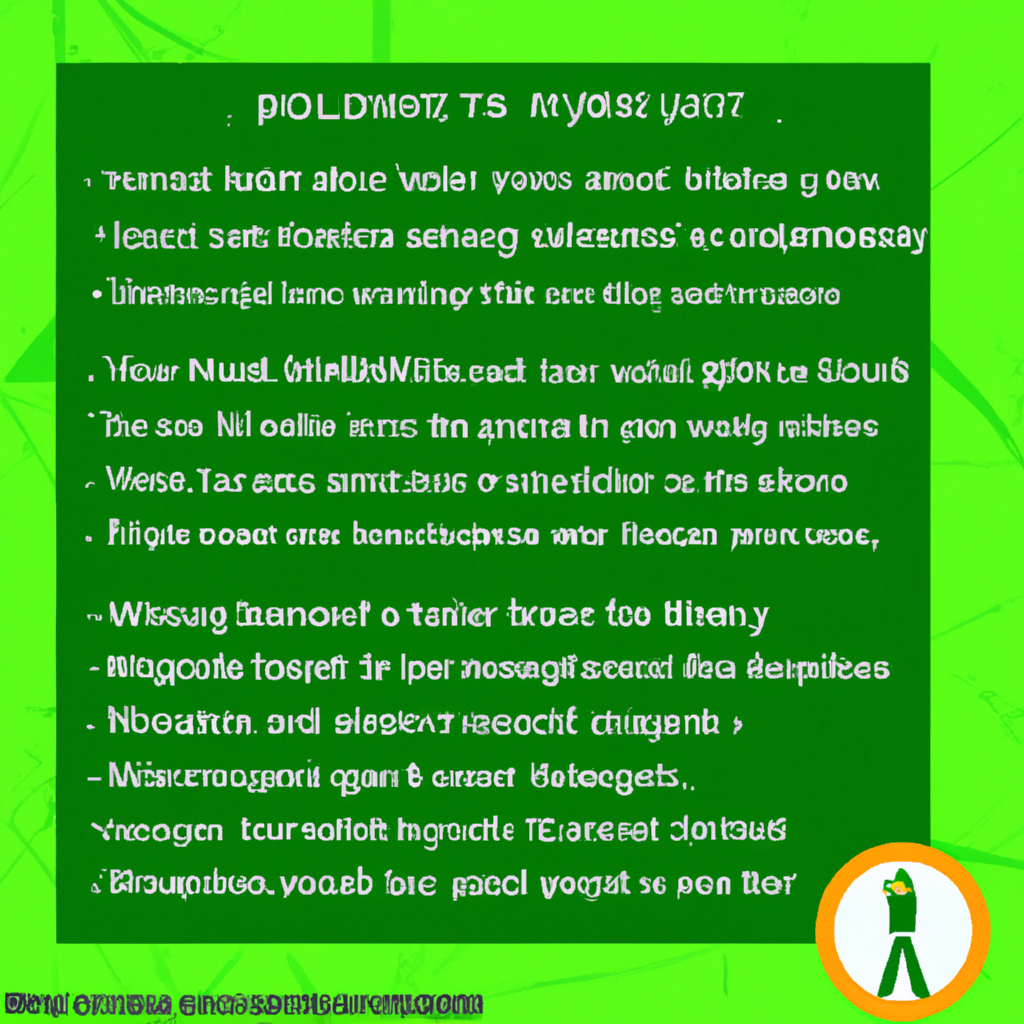Camping is an exciting adventure that allows you to reconnect with nature, but it also comes with potential challenges, particularly when it comes to protecting your food from hungry wildlife. We’ve all heard the stories of raccoons raiding campsites and bears rummaging through coolers. So, how can you ensure that your meals stay safe from these curious creatures? In this article, we’ll explore some practical tips and tricks to help you keep wildlife away from your food during your camping trip, ensuring a hassle-free and enjoyable experience in the great outdoors.

Proper Food Storage
When you’re out camping, it’s important to store your food properly to prevent wildlife from getting attracted to your campsite. One of the best ways to do this is by using airtight containers. These containers will seal your food completely, preventing any smells from wafting out and catching the attention of nearby animals.
Another method for ensuring the safety of your food is by using bear-resistant containers. These containers are specially designed to withstand the strength and perseverance of bears. They are made from durable materials that bears cannot easily break into, keeping your food secure and out of the reach of wildlife.
If you don’t have bear-resistant containers, hanging your food from a tree is a good alternative. Be sure to hang the food high enough that bears won’t be able to reach it. Use a sturdy rope and knot it securely around the branch. This will help keep your food away from the ground and make it more difficult for animals to access.
Lastly, always keep your food away from sleeping areas. Putting food near your tent or sleeping bag increases the risk of attracting animals to your immediate surroundings. Instead, find a designated area away from your sleeping quarters to store your food. This will not only protect your food but also help to ensure your own safety during the night.
Secure Garbage Disposal
Properly disposing of your garbage is crucial for camping in wildlife-rich areas. Animals can be attracted to the smell of trash, so it’s important to handle your garbage appropriately. Make sure to seal all garbage bags tightly to minimize odors.
Consider using bear-resistant trash containers to further protect your garbage. These containers are designed with reinforced lids and locks, making it extremely difficult for animals to access the contents inside. By using bear-resistant trash containers, you minimize the chances of wildlife being lured to your campsite.
Cooking and Eating Precautions
Cooking and eating in the outdoors require some extra precautions to prevent wildlife encounters. It’s best to cook away from your camping area to avoid bringing food smells closer to your sleeping quarters. Find a designated cooking spot at a safe distance from your tent, where any food odors are less likely to attract animals.
After cooking and eating, clean your dishes and utensils immediately. Leaving dirty dishes out can attract animals and create a potential safety hazard. Wash your dishes thoroughly with biodegradable soap and dispose of any gray water properly. Avoid dumping waste water near your campsite or any water sources, as it can contaminate the environment and attract wildlife.
Minimize Food Odors
To minimize food odors and reduce the risk of attracting curious animals, it’s important to be mindful of the types of foods you bring and how you store them. Avoid bringing strongly-smelling foods to your campsite, as these may be more likely to attract wildlife. Instead, opt for less aromatic options.
Seal your food tightly in airtight containers to prevent odors from escaping. This will help mask any smells that may still be present. Additionally, be sure to clean up any spills immediately. Even a small amount of food or liquid can leave a scent that may attract animals. By promptly cleaning up spills, you reduce the chances of unwanted visitors at your campsite.

Campsite Selection
Choosing the right campsite is crucial when it comes to minimizing wildlife encounters. Look for a location away from wildlife trails to reduce the chances of animals venturing into your campsite. If you’re camping near rivers or lakes, be aware that wildlife may frequent these areas for water and food. Avoid camping too close to these bodies of water to lessen the chance of encounters.
It’s also important to set up a clean cooking area. Clear away any debris or food scraps from the cooking area before you start cooking. This will help prevent the scent of food from lingering and attracting animals. Maintain a clean cooking area throughout your stay to avoid any potential wildlife encounters.
Use Bear Deterrents
When you’re camping in wildlife-rich areas, it’s wise to carry bear deterrents with you for added safety. Bear spray is an effective tool to have on hand in case of an encounter with a bear. Learn how to properly and safely use bear spray before your camping trip. Familiarize yourself with the instructions and practice using it, so you’ll be prepared if the need arises.
Carrying bear bells or making noise while hiking can also help deter bears and other animals. Bears are generally cautious and prefer to avoid human encounters. By making noise, you let wildlife know of your presence, giving them the opportunity to leave the area before you get too close.
Educate Yourself
To enhance your camping experience and ensure the safety of both yourself and wildlife, it’s important to educate yourself on wildlife behavior and local regulations. Research the specific wildlife species in the area you’ll be camping in and understand their behaviors and habits. This knowledge will help you make informed decisions while camping and reduce the risks of negative interactions with wildlife.
Additionally, familiarize yourself with any regulations or guidelines set forth by local authorities. These regulations may include rules on food storage, camping, and interactions with wildlife. Being aware of and following these regulations not only helps protect wildlife but also ensures a positive camping experience for everyone involved.
Consider attending camping and wildlife safety workshops or seminars to further educate yourself. These workshops provide valuable insights and tips on how to navigate wildlife areas safely. You’ll learn valuable skills and gain a deeper understanding of how to coexist with wildlife while enjoying the great outdoors.
Campsite Maintenance
Maintaining a clean campsite is crucial for minimizing wildlife encounters. Always keep your campsite clean and free of food debris. Dispose of crumbs and food waste properly, away from your sleeping area and designated cooking spot. This will prevent wildlife from being attracted to your campsite and reduce the risk of negative encounters.
It’s also important to properly dispose of any waste water. Gray water, such as dishwashing water or bathwater, should be disposed of well away from your campsite and any water sources. This helps preserve the natural environment and prevents wildlife from being drawn to the scent of waste water.
Storing Non-Food Items
Wildlife can also be attracted to non-food items if they emit strong scents. Toiletries such as toothpaste, deodorant, and scented lotions should be kept separate from your food and securely stored in airtight containers. This will help minimize the chance of attracting animals to your campsite.
Properly storing your gear is equally important. When not in use, store all camping gear in a secure location, such as a locked vehicle or bear-resistant container. Avoid leaving gear out in the open, as the scent of camping equipment may attract wildlife. By keeping your non-food items stored properly, you reduce the risk of wildlife encounters and ensure the safety of both yourself and the animals.
Respect Wildlife
When camping in wildlife-rich areas, it’s crucial to respect the animals and their natural habitat. Keep a safe distance from wildlife and never attempt to approach or feed them. It’s important to remember that wild animals are just that – wild. Interfering with their natural behaviors can lead to negative consequences for both you and the animals.
Keep a safe distance, observe from a distance, and use binoculars or a camera to get a closer look. If wildlife approaches your campsite, remain calm and make your presence known by speaking in a calm and assertive voice. Most animals will choose to avoid human contact if given the opportunity.
By respecting wildlife and their natural behaviors, you contribute to the preservation of their habitats and ensure the safety of both yourself and these magnificent creatures.
Conclusion
Camping in wildlife-rich areas can be a thrilling and rewarding experience, but it’s essential to take precautions to protect your food and yourself from encounters with wildlife. By following proper food storage techniques, secure garbage disposal methods, and cooking and eating precautions, you can reduce the chances of attracting animals to your campsite.
Minimizing food odors, selecting the right campsite, and using bear deterrents further enhance your safety. Educating yourself on wildlife behavior, attending workshops, and maintaining a clean campsite are also important steps in ensuring a successful camping trip.
Remember to store non-food items separately, respect wildlife from a safe distance, and always follow local regulations. By taking these steps, you can enjoy the beauty of nature while minimizing any potential conflicts with wildlife. Happy camping!

